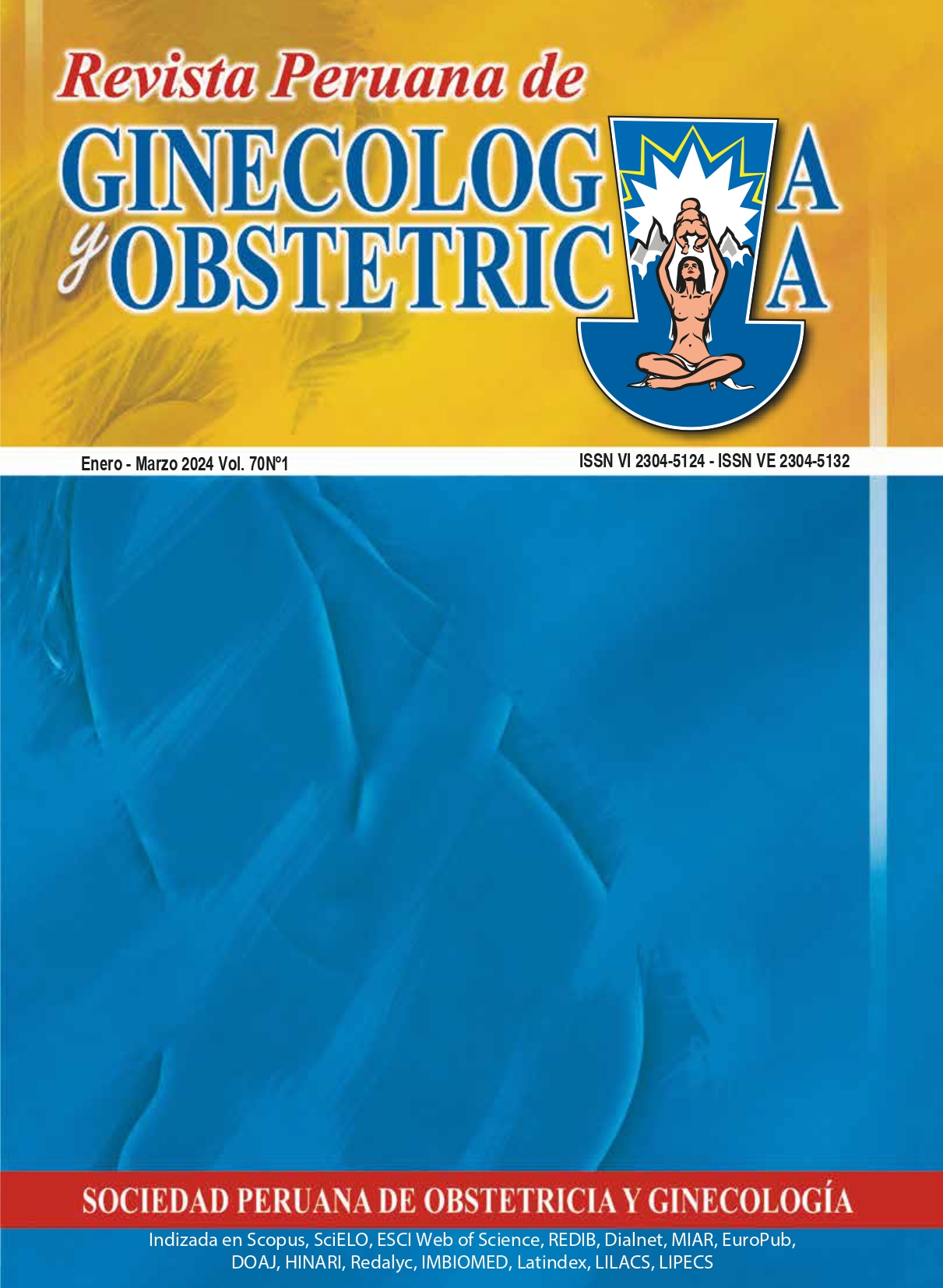Evidence in the diagnosis and treatment of postpartum depression: a narrative review
DOI:
https://doi.org/10.31403/rpgo.v70i2592Keywords:
Pregnancy, Depression, postpartum, Drug therapyAbstract
Introduction: Postpartum depression is one of the most common medical
complications associated with adverse short- and long-term perinatal outcome in
the mother, infant, and family. Objective: To describe various diagnostic methods
and therapies used for the management of postpartum depression and to
analyze the recommendations generated by different scientific groups (maternalfetal
medicine, American College of Obstetrics and Gynecology, NICE guidelines,
psychiatry, pediatrics). Methodology: Different search strategies were used in the
databases Medline (via Pubmed), Scopus, Web of Science, Embase, Cochrane, OVID
Psycho, from January 01, 2020 to February 01, 2023, using the keywords "postpartum
depression", "antidepressants", "cognitive behavioral therapy", "interpersonal
therapy", "mindfulness", controlled vocabulary. Two investigators independently
reviewed study titles and abstracts. Results: About 14% of pregnant women develop
postpartum depression. The most relevant risk factors are a history of anxiety,
depression, history of psychiatric treatment, history of physical abuse, postpartum
medical complications. Conclusions: One in seven patients (14%) develop perinatal
depression. Tools such as the Edinburgh Scale should be applied to all pregnant
women at their first prenatal check-up appointment, during the third trimester and
in the postpartum period. There are several safe therapies that have demonstrated
symptom reduction and decreased levels of relapse, with few side effects.
Downloads
Downloads
Published
How to Cite
Issue
Section
License
Copyright (c) 2024 Valeria Fuentes-Ureña, Tania T. Herrera, Allissan Orobio MD, Miguel Manzano, Isabel Blanco, Anthonier Hinestroza-Newball

This work is licensed under a Creative Commons Attribution 4.0 International License.
Esta revista provee acceso libre inmediato a su contenido bajo el principio de que hacer disponible gratuitamente la investigación al publico, lo cual fomenta un mayor intercambio de conocimiento global.















